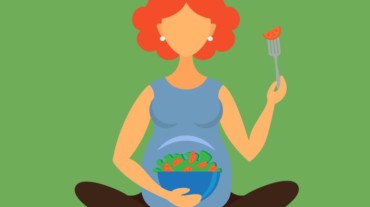
Iodine is an essential micronutrient, which is required in small quantities every day. Getting sufficient iodine is important for everyone, but especially for women during and post-pregnancy. That’s because women and children are more vulnerable to iodine deficiency disorders.
While most mothers know the importance of nutrition in pregnancy, not many know the significance of iodine that is needed for brain development of the baby in the womb. In a vast country like India, the easiest way to avoid complications due to iodine deficiency, and get one’s daily requirement of this nutrient, is by consuming an acceptable amount of iodized salt through your daily diet.
Women’s iodine requirements increase substantially, especially during pregnancy to ensure adequate supply to the fetus. Yet many women are unknowingly deficient in this nutrient, due to the increased demand for iodine by the body in the early weeks of pregnancy.
This suggests that there may be a need for additional iodine supplements of iodine in high risk populations to prevent deficiency of iodine, and associated disorders. It is vital that all pregnant and lactating mothers get their daily requirement of iodine (250 Fmcg)1.
Also, read: Dear ladies, here’s how you can keep your immunity in check during pregnancy
Vegetarians find it difficult to get adequate iodine in their diet, as iodine is mostly found in dairy products, seafood and eggs which are not a part of their regular diet. Most people need an additional source of iodine, as it is found in relatively small amounts in vegan and vegetarian daily diets. In India, there is an additional risk due to deficiency of iodine in the soil, and consequently in the food derived from it.

The iodization of salt has ensured an enduring legacy of health and well-being for millions of Indians, including women and children. According to the Iodine Global Network (IGN)2, in the last 30 years, salt iodisation has scaled up in India. Universal Salt Iodisation (USI) has contributed to saving approximately 4 billion IQ points in India, and saved nearly 280 million IQ points annually.
Consumption of iodized salt in moderation through our daily diet can help prevent miscarriages, stillbirths and avoid cretinism, which can affect the physical and mental growth of the baby, while it is in the womb or shortly after it is born.
The good news is that iodine deficiency can easily be prevented at a low cost by adding a good-quality branded Iodized salt to your diet. This World Iodine Deficiency Day, let’s take a pledge and work towards eradicating iodine deficiency to create a healthy and intelligent nation.
Select Topics of your interest and let us customize your feed.
PERSONALISE NOW